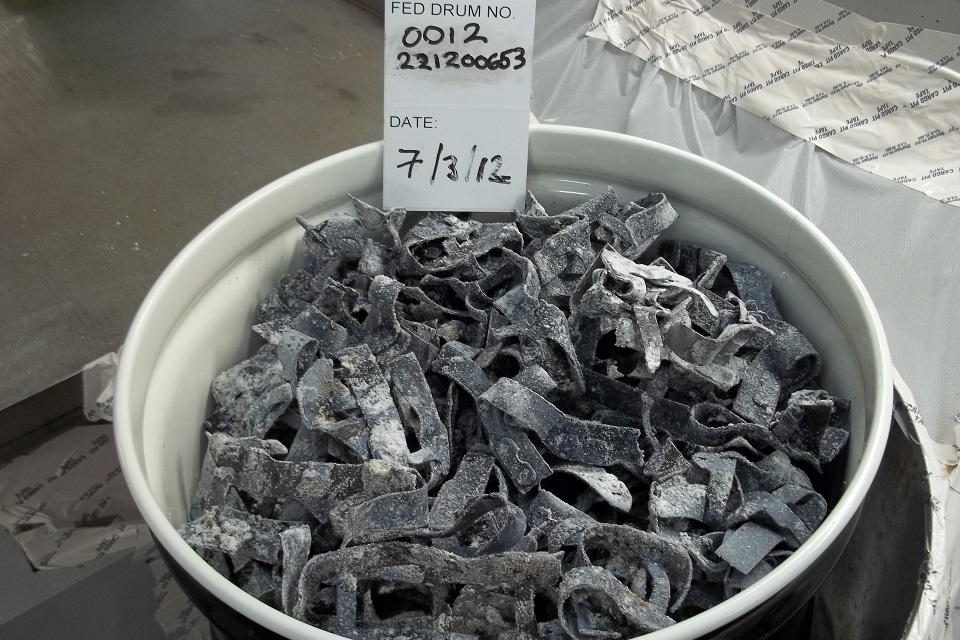This is an important step towards the site’s planned closure, as part of the NDA’s mission to clean up and decommission the UK’s earliest nuclear sites.
Magnox Ltd and its supply chain used innovative techniques and unique solutions to manage the waste, which mainly consists of pieces of the magnesium alloy cladding that surrounds Magnox nuclear fuel. They dissolved the material in acid and explored new options for disposing of the waste. The result is a reduction in the hazards on the site and shortening the FED treatment project by more than a year.
Nuclear Decommissioning Authority (NDA) Chief Executive, David Peattie, said:
This is another really important milestone and a huge step forward in cleaning up and decommissioning the UK’s earliest nuclear sites.
Finding new solutions and techniques to deal with radioactive waste is helping us to do things more quickly and efficiently, making our sites safer sooner and providing best value for the taxpayer. I would like to thank everyone involved in delivering this successful programme.
65 tonnes of FED were treated in an on-site ‘dissolution plant’, which dissolved the waste in an acid, separated the radioactive materials and reduced the volume of the solid waste by more than 90 per cent.
Over half of the FED at Bradwell was re-classified as suitable for disposal as Low Level Waste (LLW) in a first-of-a-kind collaboration between Magnox Ltd, the Low Level Waste Repository Ltd (LLWR) and specialist contractor Tradebe-Inutec.
More than 140 tonnes of FED have now been sent to Tradebe-Inutec as LLW for treatment and eventual disposal at the Low Level Waste Repository in west Cumbria – saving around 2 years of dissolution operations.

Bob Nichols, Magnox Ltd’s Bradwell Site Closure Director, said:
I want to pay tribute to the Bradwell and wider Magnox workforce who have worked tirelessly to manage Bradwell’s FED inventory, which has proved to be one of the most challenging work programmes undertaken by Magnox.
We have shown we are able to work collaboratively, both with our supply chain and other parts of the Nuclear Decommissioning Authority estate, to accelerate progress without compromising our high safety standards, which stands us in good stead as the site approaches Care and Maintenance.
A second major achievement at the site is the demolition of the used fuel ponds complex – which was used to cool and store spent nuclear fuel under water after it was taken out of the reactors when the site was generating electricity.
The redundant buildings were decontaminated over a 4 year period, which meant they could be taken down using conventional demolition methods. The remaining buildings on the site will now be enclosed in weatherproof cladding in preparation for Care and Maintenance.
Follow this news feed: DEFRA





